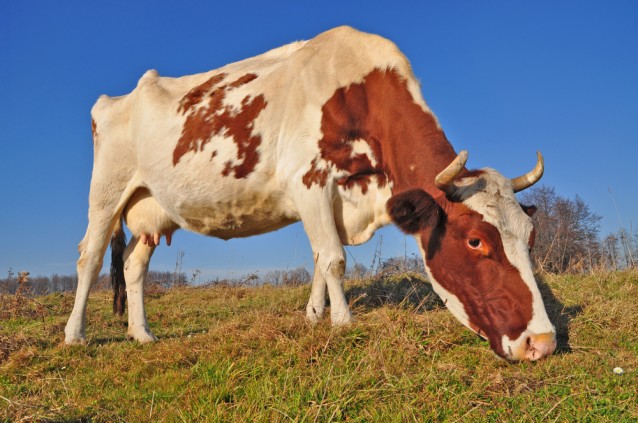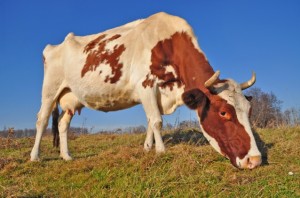
Katie Valentine from Think Progress writes…
Taxing meat as an attempt to discourage consumers to buy it could be an effective way to reduce methane emissions from livestock, according to a new study.
The analysis also estimates that the greenhouse gas emissions of raising livestock are 19 to 48 times higher than from growing high-protein plant food, such as beans and soy. Last month, a study found that methane emissions in the U.S. were about 1.5 times greater in 2007 and 2008 than previously estimated, and that livestock produced about twice as much methane during that time period than the EPA previously estimated.
In rich countries, cutting back on meat consumption doesn’t take much effort — vegan and vegetarian meat alternatives are getting closer and closer to the real thing, and most grocery stores offer a range of other plant-based protein sources. But as consumers in developing countries like China develop more of a demand for meat, scientists are looking into other ways to reduce livestock’s greenhouse gas footprint. Earlier this year, the U.N. Food and Agriculture Organization (FAO) found livestock emissions could be cut by 30 percent just by adopting better farming practices, such as feeding cows more easily-digestible food. Scientists are also looking into tropical grasses called brachiaria, which naturally inhibit the release of nitrous oxide — a gas which, according to the FAO, is responsible for 29 percent of livestock’s emissions. This wouldn’t tackle livestock’s methane problem, but scientists say using enhanced strains of the grass in cattle pastures and as a rotation crop for corn and soybeans could be a viable way to combat livestock emissions.
